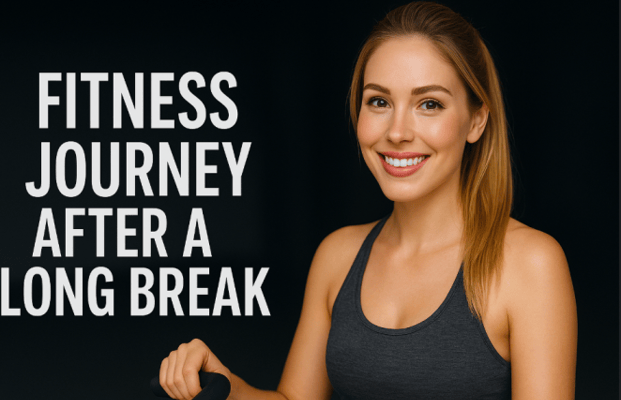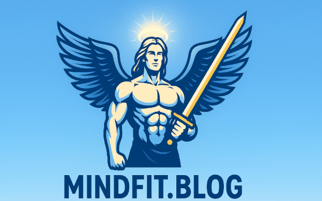Fitness Journey After a Long Break: How to Restart, Stay Motivated, and Get Results
Why Restarting Your Fitness Journey Matters Life happens. Whether it's due to injury, work, family obligations, or simply burnout, taking a long break from fitness is something many people go through. The important part is not the break itself, but how you come back from it. If you're ready to reclaim your health, energy, and confidence, you're in the right place. This comprehensive guide will walk you through how to restart your fitness journey after a long break and actually stick to it.
FITNESS
PHILIP DEVILLE
5/16/20254 min read


Fitness Journey After a Long Break: How to Restart, Stay Motivated, and Get Results
Meta Description: Discover the ultimate guide to restarting your fitness journey after a long break. Learn effective strategies, motivational tips, workout plans, and FAQs to help you get back in shape and stay committed.
Introduction: Why Restarting Your Fitness Journey Matters
Life happens. Whether it's due to injury, work, family obligations, or simply burnout, taking a long break from fitness is something many people go through. The important part is not the break itself, but how you come back from it. If you're ready to reclaim your health, energy, and confidence, you're in the right place. This comprehensive guide will walk you through how to restart your fitness journey after a long break and actually stick to it.
Table of Contents
Assessing Your Current Fitness Level
Setting SMART Fitness Goals
Choosing the Right Workout Plan
Nutrition: Rebuilding the Foundation
The Role of Rest and Recovery
Avoiding Injury: Tips for a Safe Comeback
Staying Motivated Long-Term
Real-Life Transformation Stories
Tools, Apps, and Gear to Help You
Frequently Asked Questions (FAQs)
1. Assessing Your Current Fitness Level
Before jumping into a full-blown workout regimen, it's crucial to assess where you are physically and mentally. Ignoring this step is one of the main reasons people get injured or burned out quickly.
How to Assess Your Fitness Level:
Resting heart rate: A higher-than-normal resting heart rate could mean your cardiovascular health needs work.
Body composition: Take measurements or use a body fat scale.
Strength baseline: Try basic bodyweight movements like squats, push-ups, and planks.
Mobility and flexibility: Check your range of motion in shoulders, hips, and hamstrings.
Pro Tip:
Document your starting point. Take photos, write down your stats, and set benchmarks. This helps you track progress and stay motivated.
2. Setting SMART Fitness Goals
Goals are your roadmap. But vague ambitions like "get fit" won’t get you far. Instead, use the SMART method:
Specific: What exactly do you want to achieve?
Measurable: How will you track progress?
Achievable: Is this goal realistic?
Relevant: Does it align with your lifestyle?
Time-bound: What’s your deadline?
Example SMART Goal:
"I want to lose 10 pounds in 12 weeks by working out four times a week and eating a calorie deficit of 500 calories per day."
3. Choosing the Right Workout Plan
Not all workout plans are created equal, especially after a long break. Your plan should be progressive, enjoyable, and tailored to your goals.
Types of Workouts to Consider:
A. Strength Training
Best for fat loss and lean muscle gain
Start with bodyweight or resistance bands
B. Cardio
Helps with endurance and heart health
Start with low-impact options like walking or cycling
C. Mobility Workouts
Essential for joint health and injury prevention
Include yoga, dynamic stretching, and foam rolling
Weekly Sample Routine:
Monday: Full-body strength (30 mins)
Tuesday: Low-impact cardio (30 mins)
Wednesday: Rest or yoga
Thursday: Strength (upper body focus)
Friday: Cardio or HIIT (20-30 mins)
Saturday: Mobility + Core
Sunday: Rest
4. Nutrition: Rebuilding the Foundation
Exercise is just one piece of the puzzle. Nutrition fuels your body and directly impacts your performance and recovery.
Key Nutrition Tips for Comebacks:
Prioritize protein: Aim for 1.6-2.2g/kg of body weight
Hydrate: Drink at least 2-3 liters of water daily
Cut processed foods: Focus on whole, nutrient-dense meals
Meal prep: Set yourself up for success with planned meals
Simple Meal Plan Template:
Breakfast: Greek yogurt with berries & oats
Snack: Protein smoothie
Lunch: Grilled chicken salad with olive oil
Snack: Almonds + apple
Dinner: Salmon, quinoa, steamed veggies
5. The Role of Rest and Recovery
Overtraining is a real risk after a break. You may be eager to make progress, but your body needs time to adapt.
Recovery Essentials:
Sleep: Aim for 7-9 hours/night
Stretching: Do static stretches post-workout
Active recovery: Take light walks or swim on rest days
Massage & foam rolling: Reduces soreness and improves mobility
6. Avoiding Injury: Tips for a Safe Comeback
Getting sidelined by an injury can be demoralizing. Prevent it with these strategies:
Warm-up properly: 5-10 mins of dynamic movement
Use correct form: Consider a few sessions with a trainer
Progress slowly: Increase intensity by no more than 10% weekly
Listen to your body: Soreness is okay; pain is not
7. Staying Motivated Long-Term
Consistency is more important than intensity. Motivation will ebb and flow, so create systems that keep you going.
Motivation Hacks:
Accountability partner: Workout with a friend or join a class
Fitness journal: Track workouts, food, and mood
Rewards: Treat yourself for hitting milestones
Mindset shift: Focus on how fitness makes you feel, not just look
8. Real-Life Transformation Stories
Mike, 38
"After a 5-year break, I started with walking and bodyweight workouts. In 6 months, I dropped 20 lbs and felt stronger than I did in my 20s."
Alicia, 27
"I was intimidated at first. I started going to a women-only gym. Community support changed everything."
9. Tools, Apps, and Gear to Help You
Apps:
MyFitnessPal: For calorie tracking
StrongLifts 5x5: For strength training
Centr or Fitbod: Personalized training plans
Gear:
Resistance bands
Foam roller
Adjustable dumbbells
Quality running shoes
10. Frequently Asked Questions (FAQs)
Q1: How long does it take to get back in shape after a long break?
A: It depends on your starting point, but most people see noticeable results within 4-8 weeks with consistent effort.
Q2: Should I see a doctor before restarting?
A: Yes, especially if you have pre-existing conditions or have been sedentary for a long time.
Q3: Can I lose weight with just walking and diet?
A: Absolutely. Walking combined with a caloric deficit is very effective, especially for beginners.
Q4: What should I do when I lose motivation?
A: Revisit your goals, switch up your routine, or find a fitness community for support.
Q5: Is soreness after workouts normal?
A: Yes, especially when you’re starting out. But sharp or persistent pain is a red flag.
Final Thoughts: Your Comeback is Your Power
Taking a break doesn’t mean you’ve failed. In fact, your return can be even stronger. With a smart plan, patience, and self-compassion, you can reignite your fitness journey and surpass your old self. The best time to start was yesterday. The next best time? Right now.
⚠️ Disclaimer:
This article is for informational purposes only and is not medical advice. Fasting and any diet changes may affect individuals differently. Always consult with a qualified healthcare professional before starting any fasting plan, diet, or weight loss program, especially if you have pre-existing health conditions or take medications. Results vary, and this content is based on personal experience and research. Your health and safety come first! 🚀🔥
We are affiliates. It means that we might receive a commission if you ever buy a product on our website, with no-extra cost for You of course. Thank You very much!
(Some parts of this article was written with the help of AI to provide the most effective and well-researched tips.)
Written by Philip DEVILLE
Empowerment
Transform your mindset for lasting weight loss.
Support
Journey
contact@mindfit.blog
© 2024. All rights reserved.
Disclaimer: We are not doctors. You should see one before starting any diet or routine in your life, especially if you are under conditions! Plus, We are affiliates. Which mean we may receive a commission if You ever purchase a product on our site, with no extra-cost for You of course! Thank You Very Much!
